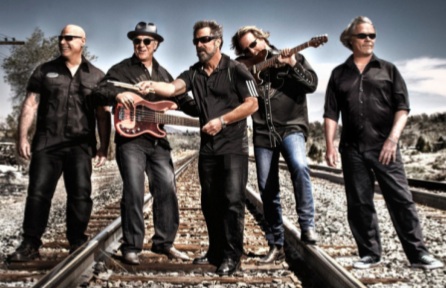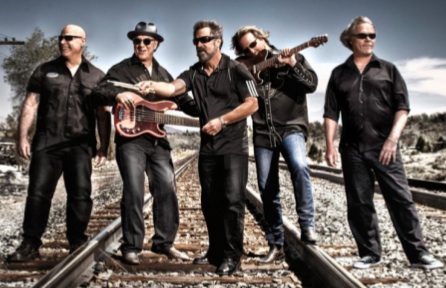by Howard Copelan
Why dose a band take off?
Why does it break up?
And why does it come back?
[media id=1 width=320 height=240]
Those three questions have been knocking around my brain after interviewing Stu Cook the original bass player of Creedence Clearwater Revival who along with original drummer Doug Clifford formed Creedence Clearwater Revisited about 17 years ago.
Like it’s original incarnation CC Revisited started off a little slow but is now filling up concert halls and stadiums to three generations of fans on three continents.
They play in Wendover on November 19.
[media id=13 width=320 height=240]
Getting back to the three questions or at least the first one.
The Creedence sound was born in 1968 but the group was born ten years before in an El Cerrito Jr. High.
“We knew each other since the 8th grade,” Cook said.
It took ten years and several name changes before Creedence was born and captured the world.
“I think was a mixture of everything, the beat, the music, the songs,” Cook said. “We play the kind of rock and roll that starts at the stomach and ends around the groin.”
But there has to be more to it than that.
There were a lot of good bands out there back in the Rock’s Golden Age and they made good music, but only a very small hand full are still performing in any form and even fewer till have a
song featured on a movie sound track.
Creedence does.
It is said the second only to smell music is the most important of the sense in evoking memory.
So I popped a CD of Creedence into my laptop and took a listen.
And I remembered.
I remembered my friends.
And then it hit me, Creedence is the perfect guy music.
Somehow or another those four guys created a sound that tapped into the primeval dissonance of young man hood.
Creedence not only rocked the house in the early 1970’s, Willy and the Poor Boys were playing long after the band broke up in 1975.
Creedence provided not only the sound track of the Vietnam War, but also Panama
the First and Second Gulf War and it now echoes off the mountains of Afghanistan.
In 1982 Beirut, Creedence could be heard from the US Marines base and from the mountains of the Shouf when American volunteers in the Israeli Army cranked up Proud Mary.
It is not that Creedence is a ‘war’ band far from it, it just there is perhaps no better guy music. Creedence can be heard in college dorms, poker parties, beaches. The sound isn’t exclusively for young men, but it does resonate particularly deep with them.
“One of our biggest fan bases is in prisons,” Cook said
At the risk of veering into schmaltz perhaps the reason why Creedence’s music is still as relevant today as it was is its honesty.
Yeah we know honesty from a Bay Area band that sang like it was born on the bayou?
Creedence however never lied about being from Louisiana, they played their music and if fans assumed it, Creedence let them assume it.
A real fan knew where the boys were from.
When it comes to collars Creedence was/is/ and always will be– true blue.
From song to song, beat to beat Creedence’s message rings true to the working class.
“You will work for the Man the rest of your life, but that doesn’t mean you can’t be strong,
brave and have a good time.”
Besides the Man and his fortunate sons aren’t invited to the party.
The bands break up is the stuff of rock legend and Cook didn’t add anything new. With the air
of a man resigned, he shrrugged the question off.
“I haven’t spoken with Fogerty for about 15 years,” he said. “And frankly I got nothing more
to say to him.”
 Even during the breakup and the years of acrimony, the band played on, if not live then on 8 tracks, tapes and CD’s, a lot of Creedence music especially in the latter years was stolen 15 years ago in the summer of 1995, Cook and Clifford got tired of being belonging to the band with the most bootlegged music.
Even during the breakup and the years of acrimony, the band played on, if not live then on 8 tracks, tapes and CD’s, a lot of Creedence music especially in the latter years was stolen 15 years ago in the summer of 1995, Cook and Clifford got tired of being belonging to the band with the most bootlegged music.
They began playing the songs again, they began touring and they discovered that people still wanted to hear they music they made up close and personal.
It is one thing to be part of the music of a generation, it is quite another to be the music of generations.
The poor boys didn’t do so bad for themselves after all.



